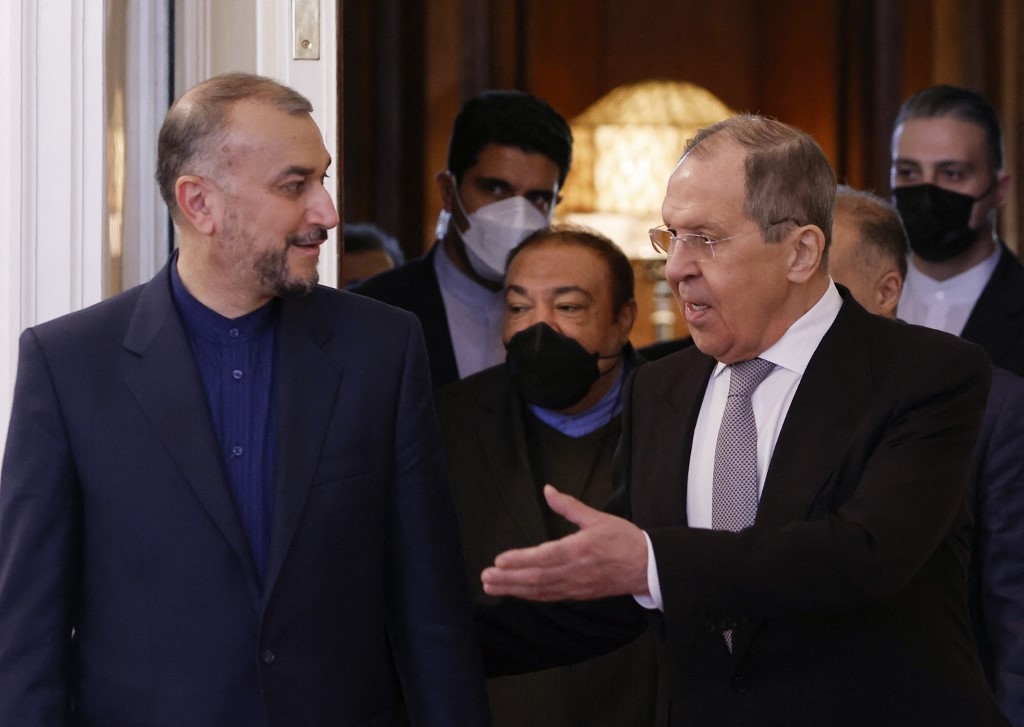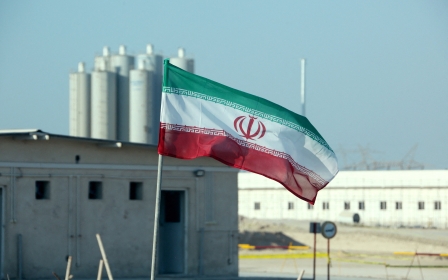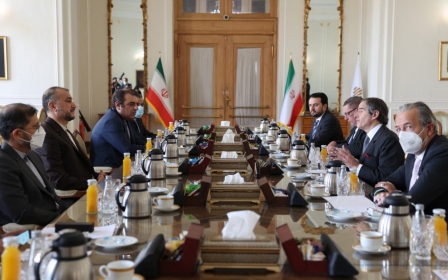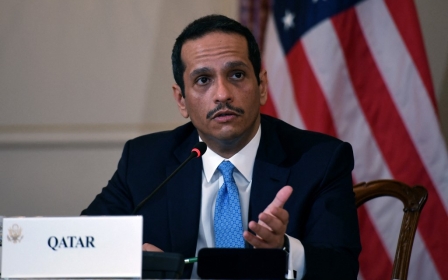Russia says it has 'received guarantees' from US over Iran nuclear deal

Russia's foreign minister said on Tuesday that Moscow had received "written guarantees" from the US that sanctions associated with its invasion of Ukraine would not affect its nuclear supply agreements and cooperation with Iran in line with the 2015 nuclear agreement.
"We received written guarantees. They are included in the text of the agreement itself on the resumption of the Joint Comprehensive Plan of Action on the Iranian nuclear programme," Sergei Lavrov told reporters during a press conference in Moscow with his Iranian counterpart, Hossein Amir-Abdollahian.
Earlier this month, Russia asked for guarantees from Washington that its trade, investment and military cooperation with Iran would not be hindered by US sanctions over the Ukraine war.
The US called the last-minute demand "irrelevant", and also reportedly said it would not negotiate exemptions to the Russian sanctions and could try to agree a separate deal excluding Moscow. However, France, Germany and the United Kingdom warned Russia's demand could lead to the collapse of the talks.
In their joint press conference, Lavrov and Amir-Abdollahian rejected claims that Russia's demand was presenting an "obstacle" to negotiations in Vienna and backed a return to the deal that would curb Iran's nuclear programme in exchange for sanctions relief.
There was no immediate confirmation from the US on Lavrov's comments, but the potential breakthrough raises prospects that a deal could still be achieved, bringing Iranian oil back onto global markets.
Following Lavrov's comments, the price of oil fell below $100 a barrel for the first time this month, after shooting up to record highs at the beginning of March.
A State Department spokesperson told Middle East Eye: "We would of course not sanction Russian participation in nuclear projects that are part of resuming full implementation of the JCPOA."
But the spokesperson added that the US "cannot provide assurances beyond that" and the department has "no comment on FM Lavrov’s publicly reported remarks".
"Perhaps it is now clear to Moscow that, as we have said publicly, the new Russia-related sanctions are unrelated to the JCPOA and should not have any impact on its implementation."
Tehran on Monday said the US needed to make a decision to revive the nuclear deal.
Pause in talks
Last week, talks in Vienna aimed at restoring the deal were put on hold after Washington announced it had seized the oil cargo of two Iranian ships which it claimed were breaking sanctions.
The Iranian delegation repeatedly warned the US in indirect talks in the Austrian capital not to seize the cargos of the two Greek-managed ships in Houston and the Bahamas, just as the negotiations on removing most of the sanctions were coming to fruition.
However, Amir-Abdollahian said on Tuesday that nothing could negatively impact the talks in Vienna that are aimed at reviving the deal.
"The interruption of talks can pave the way for the resolution of issues and the return of all parties to their nuclear deal commitments," Amir-Abdollahian said. The Iranian diplomat added that he had invited Lavrov to visit Iran soon.
Last week, Middle East Eye reported that the US also made new unspecified demands that surprised and angered the Iranian side.
Washington is refusing to lift the designation of the Islamic Revolutionary Guard Corps as a foreign terrorist organisation; there is an unresolved issue between Iran and the International Atomic Energy Agency on the "possible military dimensions" of Iran’s activities; and there remains the issue of removal from the sanctions list of other companies, businesses and individuals.
Middle East Eye delivers independent and unrivalled coverage and analysis of the Middle East, North Africa and beyond. To learn more about republishing this content and the associated fees, please fill out this form. More about MEE can be found here.





